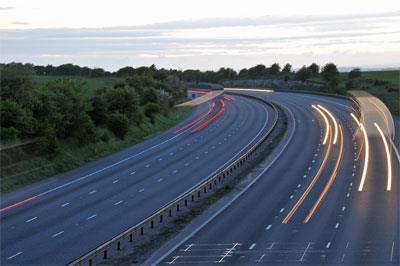One year after the government ditched plans to create new smart motorway projects, amid safety concerns, the RAC is calling for the reinstatement of hard shoulder lanes on all existing smart motorways.

The government cancelled plans for the further roll out of smart motorways in April last year in response to mounting public concern, following a number of fatal crashes involving cars that had broken down on smart motorways.
At the time, the decision was attributed to “financial pressures” and lack of public confidence in the safety of smart motorways.
The move saw 11 schemes paused and three more, that were earmarked for construction, were abandoned.
The government said at the time that cancelling these schemes meant it had more time to “track public confidence in smart motorways over a longer period”.
However it stopped short of reinstating the hard shoulder to the 400 miles of smart motorways that are already in existence.
A National Highways report published in December last year revealed that motorways without a hard shoulder are three times more lethal to break down on than those that retain the safety lane.
The study by National Highways also showed that the rate of ‘killed and serious injury’ (KSI) incidents during breakdowns on smart motorways with no permanent hard shoulder has increased by 10%.
This week RAC head of policy, Simon Williams, called for more action. He said: “There is a real irony when it comes to talking about cost pressures in relation to these distinctly unpopular types of motorway.
“While heralded as a cost-effective way of increasing capacity on some of our busier roads, a colossal amount of public money has since gone into trying to make them safer – for instance by installing radar-based technology to detect stricken vehicles more quickly, plus the creation of additional emergency refuge areas.
“This cash needn’t have been spent. The government ploughed on with building all-lane running motorways, regardless of concerns expressed by drivers, the RAC and even the [House of Commons] transport committee.
“We continue to believe that the government should either convert existing all-lane running smart motorways to dynamic ones – where the hard shoulder is only opened to traffic during busy periods – or repaint the white line and reintroduce a permanent hard shoulder on these roads.
“In either case, queue-busting technology such as variable speed limits could remain to help ensure traffic flows as smoothly as possible.”
A DfT spokesperson said: “While smart motorways are statistically among the safest roads on our network, we recognise the need for the public to feel safe when driving, and have cancelled plans for all new smart motorway schemes.
“We are also investing £900m to make improvements on existing smart motorways, including building more emergency areas on these roads.”

















